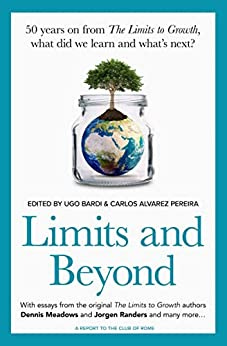We have reviewed the first two chapters of the new book Limits and Beyond. The reviews can be found at The Yawning Gap (Chapter 1) and No More Growth (Chapter 2). In this post we take a look at the third chapter, written by Dennis Meadows, a co-author of the original Limits to Growth. Dr. Meadows reports that he has delivered over a thousand speeches to a very wide variety of audiences. In this chapter the author summarizes “19 of the most common questions, comments and objections” that he has received over the years. Some of his insights are as follows:
The World3 model continues to be more useful than the “many models advanced by economists who refuted our work since its first publication”.
He distinguishes between physical and social models. We can predict solar eclipses or the melting point of ice with certainty, but we cannot predict how humans will act. Therefore, the fact that modern computers are much more powerful than their 1972 counterparts is not necessarily more helpful. (Engineers express the same distinction when talking about the difference between precision and accuracy. “When you’ve got baloney, it doesn’t matter how thin you slice it, it’s still baloney”. Or, “An engineer is someone who multiplies 2 by 2 on a slide rule, gets an answer of 3.9 and approximates to 4”.)
“Climate change was not a serious concern 50 years ago”. Dr. Meadows argues that the model is nevertheless still valid because, “magically eliminating it would still leave other grave problems”. In other words, climate change is not a root cause; instead it is a symptom of deeper root causes.
The biggest threat is to our social fabric.
He concludes by saying that the, “. . . report did not make discernible changes in the policies of the world’s leaders”. However, it did influence the thinking of many individuals.
The fact that Dr. Meadows has worked so hard to deliver the message of Limits to Growth is impressive. The question remains, however, “Why has such communication mostly failed to make a discernible impact on the body politic?”
Communication is, of course, a two-way affair. People such as Dr. Meadows speak, but others have to listen. And, as I point out in The Coffee Shop and Small Potatoes the vast majority of people don’t “get it”. At best, they see climate change as being just one problem among many. Maybe they sense that facing up to limits to growth involves making sacrifice, and most people don’t want to go there.
One message that we have definitely learned that simply presenting well-researched information is not enough. It is possible that we need some type of '‘social tipping point’ as I discuss in Needed: A Tipping Point.





